- Home
- Rachel Caine
Gale Force tww-7 Page 6
Gale Force tww-7 Read online
Page 6
But if this was some kind of bottled, stable antimatter, that was bad. Very, very bad. When matter and antimatter collided, gamma rays were one side effect, which would explain the radiation. Even this container, whatever it was, wasn’t able to completely contain the antimatter, so there was a continuous stream of radioactive energy pouring off it.
“Antimatter collisions are about ten times more powerful than chemically based energy,” Silverton said, and wiped his sweating forehead with his sleeve. “One kilogram of antimatter annihilating itself is supposed to produce about 180 petajoules of energy.”
“Which is . . .”
“Catastrophic would be charitable.”
“And how much do you think is in there?”
We both looked at the thing lying on the concrete floor, alien and deadly enough to destroy a Djinn even without being released.
“I think,” Silverton said slowly, “that we’re looking at about two kilograms.”
In other words, double the worst-case scenario he’d just described.
“We need the Djinn,” I said. “At the very least, they need to know about what happened to him.” I nodded toward the dead Djinn.
Silverton nodded. “I think we’re going to need more than the Djinn,” he said.
“Like who?”
“God.”
Chapter Three
There was no way we could safely remove the black antimatter shard by ourselves. Touching it had damaged Silverton already; he was trying to hide it, but I could see the pain in his face, the way his gloved hands were trembling. I remembered Lewis’s blistered hands— and that had been on the aetheric.
“Let’s get out of here,” I said. Silverton didn’t argue. He had trouble getting to his feet. I dumped the equipment, stripped off his pack, and supported him on the way up the stairs. He made it about halfway before his knees gave out. He was a big guy, and I had to work hard to get him up the rest of the way and out into the hallway.
“Leave,” he said. In the light from my floating lantern, he looked drawn and sick. “You need to get the Djinn here, fast. Go.”
“I don’t need to go anywhere to do that,” I told him, and concentrated on the invisible thread that linked me with David. It was thin here, but still a connection. I pulled, and distantly felt his attention shift toward me. I couldn’t communicate with him over the aetheric, at least not from this spot, but he knew I was looking for him.
I put my back into pulling Silverton down the hallway, trying to avoid the worst of the debris. It seemed like a very long way, and I had to superoxygenate my lungs to keep spots from dancing in front of my eyes. I’d pay for it later, but for now, I just wanted out.
My heels hit an inconveniently placed broken computer monitor, and I tipped backward.
David caught me. “What the hell is going on?” he asked. “What are you doing?”
I whirled to face him. I can only imagine how I must have looked—wild-eyed, sweating, scared. He took a step back. “Help me get him outside,” I panted. Without comment, he scooped up Silverton in his arms and walked down the hall, olive-drab coat belling behind him. I hustled after, feeling a shake in my knees that definitely hadn’t been there before. In fact, I felt distinctly sick now, wobbly, light-headed, but I was determined not to show it. We had enough problems to talk about.
David simply blew the glass doors off their hinges at the entrance—effective, if a little showy. The resulting hail of broken glass melted away in midair and formed a soft mound of sand, which served as a bed on which he placed Silverton. “Now,” he said, and turned to me, “what the hell—”
He caught me as I collapsed. Which actually came as a surprise to me—the collapse, not that he caught me. I hadn’t felt it coming on; I’d thought I was coping just fine. David pressed his warm hand to my forehead as he lowered me to the sand beside Silverton. “Jo?” He muttered under his breath, something about stupid Weather Wardens and their foolish sense of invulnerability, which really wasn’t fair because I didn’t feel at all invulnerable at the moment. I felt scared.
David’s magical touch poured warmth into me, but it was like pouring it into a black hole. Whatever was affecting me, it was wrong in ways I couldn’t even begin to realize.
“Wait,” I said, and held his gaze with all the determinationI had left. “David, I need you to go into the basement. There’s a dead Djinn there, and a thing— a thing we think is antimatter. Don’t go alone. Be careful—”
I had more to say, but it got lost somewhere, and the light was too bright in my eyes, and then it was dark and still and quiet, and I was all alone, floating.
Well, dying always had been kind of peaceful for me.
I woke up in a hospital, hooked up to tubes, and I was alone. No David by my bedside. No Lewis loitering in a chair. No Cherise, even.
All alone.
I pressed the call button, wondering if I was in a Warden hospital. Pressing the call button seemed like an Olympic event, and one I wasn’t likely to medal in at that. I was unreasonably exhausted, considering I’d just woken up. While I waited for attention, I looked over the room I was in. Typical hospital issue—an adjustable bed, with rails that were up. Machines that beeped. A silently playing TV high in the corner, tuned to the Weather Channel, which led me to believe that at the very least I’d had Warden visitors.
Nobody was responding to my call. I pressed the button again, sweating with effort. My mouth tasted like metal, and it was sticky and dry. Everything smelled wrong. My whole body ached, the kind of nasty, all-over body aches you get with high fever, and there were some white-hot spots of pain in various joints. I’d been hurt worse, but somehow, being all alone, hooked up to machines and left ignored, made this seem worse.
I gulped down a breath and pressed the button again, convulsively.
The door banged open, admitting a nurse wearing the latest scrub fashions—floral print, with a predominantly red color. She didn’t look familiar, and she didn’t look happy. “Ms. Baldwin,” she said. “Awake, I see.”
I tried to nod. Appallingly, I couldn’t seem to get my throat to produce sounds. I gestured at the water pitcher; she poured me a glass and held it for me. I gulped. Water had never tasted quite so good . . . until I realized that it was taking on a red tinge. I was bleeding into it. I pulled back, gasping, and wiped my lips. Blood on my fingers. It was coming from my gums, which were seeping red.
“Relax, honey,” the nurse said, unbending a little bit when she saw the obvious distress in my face. “You had a pretty high dose of radiation. You’re getting treatment, though.”
The water had lubricated my vocal cords. “Where am I?”
“Extension Hospital Fourteen,” she said, which meant I was in the Warden system, not general human health care. Thank God. “I’m sorry we didn’t have anybody with you, but you’ve been out for a while, and we had other patients. Do you have a lot of pain?”
I managed to keep my nod to a measured sort of response, not a frantic oh-my-God-yes-give-me-drugs sort of gesture. She got the point, though, and showed me the meds button, which I pushed for all it was worth. Liquid gold painkillers slid through my veins, and I breathed a deep sigh of relief. Even tasting blood didn’t seem that disturbing, suddenly.
“David?” I asked. My voice sounded horribly weak.
The nurse hesitated and didn’t quite meet my eyes. “Your friend and Lewis Orwell brought you in, but they had to leave. Some kind of emergency.”
“Haven’t been back?”
“No, not yet. But I’m sure they’ll be back as soon as they can.”
Not good. That meant something had happened. She’d said it had been days. . . .
Someone else hip-bumped open the door, and came in carrying two tall coffees. It was Cherise. She looked tired, but still glamorously touseled, and the smile she gave me was pure relief. “I knew a mocha would get you up,” she said, and flopped into a chair next to me. “You are so predictable. So. How are you?”
�
��Sick,” I said. “What the hell happened?”
The nurse cautioned her about hot liquids and my invalid state, which both of us ignored, and left the room. Cherise leaned forward and helped me manage the mocha. It was warm, not scalding, and the caffeine/ sugar/fat combo made me feel much steadier inside. “Well,” Cherise said, “you pretty much freaked everybody the hell out. Including people I’ve never heard of, who flew over from Switzerland and Australia and places like that.”
“Wardens?”
“Some of them, yeah. There’s some kind of big meeting going on. That’s where everybody is.” Cherise’s big blue eyes focused on mine, and I saw an internal debate going on for a few seconds before she said, “Your friend’s dead.”
“I—what?”
“Your friend Mr. Silverton. He didn’t make it, Jo. They tried, but he was too far gone. David and Lewis both tried, but nothing worked. They were scared about you, too.” Cherise’s expression told me everything I didn’t want to know about how bad off I really was. Bleeding gums were the least of my problems. “You’re going to have to rest up this time. Seriously.”
“But . . . did they say anything about the Djinn? The dead one? And the—”
“They said that under no circumstances was Joanne Baldwin supposed to jump out of bed and charge to anybody’s rescue. Seriously, Jo. Not your problem. Not anymore.” She reached out and smoothed hair back from my face. “You look like crap, by the way.”
“Gee, thanks. So glad you’re my affirmation girl.” I actually was glad, but I couldn’t let her know that. There was love, real and soothing, in the touch of her fingers. It lulled as much as the morphine. I felt sharp grief at the death of Jerome Silverton, and guilt. We’d gotten in over our heads, and that was the last thing we’d intended. I’d counted on Jerome, as the expert, to know when to back off. Instead, he’d continued though he’d known it was likely a suicide run. I guessed he thought it was necessary.
“He wrote you a note,” Cherise said. “While he could still write. Do you want it?”
Cherise was a better mind reader than most of my magic-gifted colleagues. I sighed and nodded, feeling the hot prickle of tears in my eyes. She dug paper from the front pocket of her jeans, unfolded it, and handed it over.
Jerome’s handwriting was messy. I couldn’t tell if that was normal for him, or if the damage was taking its toll. It took me a while to work out what the note said, but when I did, it hit me hard.
It said, I was wrong. Thought I could control it. Not your fault.
And, on a separate line, Hope you’re okay.
I folded it up, closed my eyes, and fought back wave after wave of useless tears. When I’d managed to get control again, I handed the note back to Cherise, who exchanged it for a box of tissues.
“The dead Djinn?” I asked.
“Well, that’s the weird thing,” Cherise said. “I mean, I wasn’t there, obviously, but I heard people talking. According to David, the Djinn wasn’t there.”
“What?” He most certainly had been there. I could still remember Silverton’s knife slicing his body open, remember the elastic tension of holding open the edges of the incision so Silverton could pull out the black glass shard.
“Well, the Wardens say he’s there. The Djinn say he’s not. They say there’s a body, but it’s not Djinn. They can’t see the black thingy, either. Nothing.”
I opened my mouth and shut it again, thinking hard. “David, too?” I finally asked.
“Yup. None of them can see it, sense it, whatever. It’s just not there for them.”
Oh, man. Not good. “So what are the Wardens doing about it?”
“They’re ‘containing the situation.’ ” Cherise made air quotes around the phrase, and rolled her eyes. “Some of them are talking about encasing it in a big block of lead. Some are talking about shooting it into space. Nobody knows what the hell to do, but everybody agrees, it’s way too dangerous where it is.”
“Everybody except the Djinn.” I couldn’t leave that alone. “Seriously, they can’t see it? How can they not see it?”
“No clue.”
“What does Lewis say?”
“He can see it, and yeah, he knows it’s a problem. The Djinn thinks the Wardens have some kind of psychosis. They say that if the thing was there, they’d be able to sense it.”
Great. “How do they explain Silverton? Me?”
Cherise looked grim. “They think one of you screwed up, accessed something you shouldn’t have. They can’t explain it, but they don’t believe the Wardens’ explanation, either.”
“Not even David?”
“No,” she said softly. “Not even David. Sorry, babe.”
Wow. That was . . . strange. And I was too tired and too sick to do anything about it. Cherise didn’t need to worry about me going all heroic and crazy on her; all I wanted to do was hide under my blankets and pretend it was all just a bad dream.
And for a while, that was exactly what I did, as the morphine dragged me off to a dream-rich sleep.
Two days later, I was interrogated by a panel of Warden elders: Guillard from Switzerland, Jones from Australia, and Lewis representing the U.S. I felt a little better, and they’d let me walk to the shower and wash my hair, which made a difference in both body and soul.
There was also a Djinn in the mix—a short, round little thing with that indefinable glimmer to her skin and eyes. She was introduced as Zenaya, and gave me a slight nod but no other indication of how she stood on the subject of me.
No David. That was deeply troubling.
I went through things, step by step, detailing what I’d seen and experienced. Zenaya said nothing, but her eyes flashed an eerie green when I talked about the dead Djinn, and the manner of his death. I addressed a question to her. “Wouldn’t you know if one of your people disappeared?” I asked. She shrugged slightly. “Wouldn’t David know?”
“Yes,” she said. “But he says he finds no one missing.”
“Ashan?”
Another green flash to her eyes. She folded her arms. “Ashan says his Djinn are all well. He says nothing more.”
Which might or might not mean anything. Ashan wasn’t chatty at the best of times. “But I saw him. And trust me, he was a Djinn.”
“How could you tell?” Zenaya asked me, very reasonably. I started to answer, then hesitated.
Because I really wasn’t sure how I knew. I just . . . knew. “His aetheric signature,” I finally said. “Only the Djinn look like that.”
“Leaving aside that point,” Guillard said, in his rich, dark chocolate voice, “clearly you came into contact with something highly dangerous. Earth Wardens have not been able to correct some of the damage you sustained. We are dependent on simple human methods, which is why we’ve had to hospitalize you for so long.”
Lewis nodded. He wasn’t looking at me; he kept his gaze focused on the window, on the rain outside. “Sometimes damage just surpasses our ability,” he said. “That could have been the case this time.”
“No,” I said. “David tried to heal me, and you know he should have been able to. He has before.”
Lewis had no answer to that. Whatever he was thinking, he was keeping it close to the vest, and he wouldn’t damn well look at me. I wondered why. Was he angry about Silverton? He had every right to be, I supposed. I’d screwed up, big time, and a Warden had paid with his life.
Guillard asked more questions about the black shard, things to which I had no real answers except to give a recitation of my conversation with Silverton in the basement. And then the whole thing was over; Jones and Guillard wished me well and departed, and Zenaya left without a backward glance.
Lewis stayed. He still wouldn’t look at me. Out of sheer stubbornness, I refused to speak first. I sipped water and tugged irritably at my drying hair, trying to get it to stop poodle-curling around my face. I used to have straight hair. I liked my old straight hair.
When I finally turned my attention back to my guest, Lewis was st
aring at me, and what was in his eyes wasn’t anger at all. Or even disappointment. It was something neither one of us could ever really acknowledge, and it was big and powerful and breathtaking.
He cleared his throat and looked down, and said, “You scared the shit out of me.”
“Yeah. Sorry, I had no idea it was going to be that dangerous, or I’d have done more, taken better precautions—”
He waved that aside. “Silverton was your expert; you were listening to him. So if there’s blame, it’s his, and he’s beyond all that now, poor bastard. Even if you’d pulled back as soon as you found the dead Djinn, it would have been too late to keep you from getting sick. This stuff is badly toxic. We couldn’t have left it there. As it is, we’ve had to inform NEST, and they’re following up with radiation treatments for anyone who reports in sick to the hospitals.” NEST was the Nuclear Emergency Support Team, out of Homeland Security. I didn’t want to imagine how that conversation had gone.
“But by taking it out of the Djinn’s body—”
“The Djinn’s body must have been containing it, to a certain extent. You exposed yourselves to a massive dose,” he said. “Silverton more than you, because he actually touched it, even with protective gloves.”
It could have just as easily been me. Maybe Silverton had known the risks when he’d reached into that cavity to grab the thing; maybe he’d just been unlucky. No way to know. I’d come close to dying lots of times—I’d actually gone over the edge, once or twice—but this felt different.
This left me shaky and deeply unsettled.
“Is it true? That the Djinn really can’t sense it at all?”
“The Djinn think we’re all suffering from some kind of mass hallucination,” Lewis said. “David’s being kind about it, but it’s a blind spot for them. A big one. I don’t know how we’re going to convince them.”
“If me lying in this hospital bed doesn’t—” I felt light-headed, short of breath. “David has to believe me. He has to.”
Lewis gazed at me, expressionless. “I hope he does,” he finally said. He leaned over and kissed me chastely on the forehead. “About your wedding—”

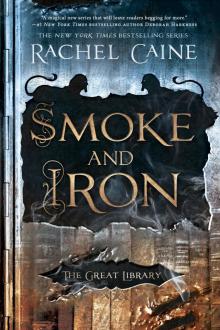 Smoke and Iron
Smoke and Iron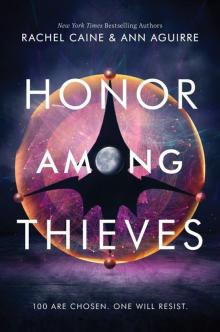 Honor Among Thieves
Honor Among Thieves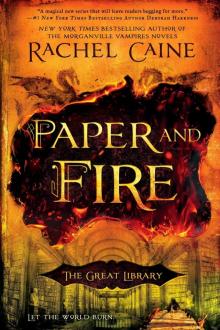 Paper and Fire
Paper and Fire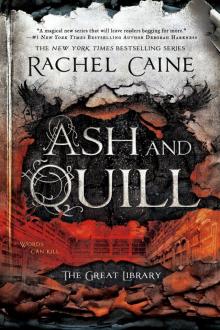 Ash and Quill
Ash and Quill Wolfhunter River (Stillhouse Lake Book 3)
Wolfhunter River (Stillhouse Lake Book 3) Undone
Undone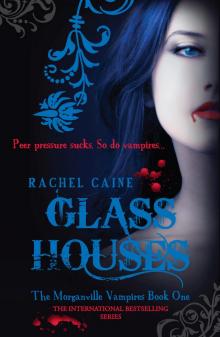 Glass Houses
Glass Houses Prince of Shadows
Prince of Shadows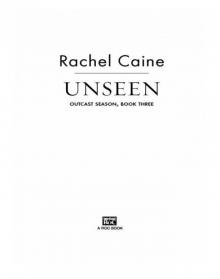 Unseen
Unseen Midnight at Mart's
Midnight at Mart's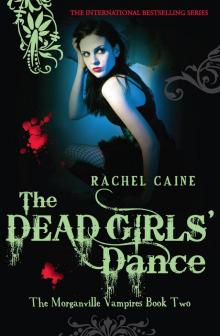 The Dead Girls Dance
The Dead Girls Dance Last Breath
Last Breath Stillhouse Lake
Stillhouse Lake Daylighters
Daylighters Midnight Alley
Midnight Alley Black Dawn
Black Dawn Fall of Night
Fall of Night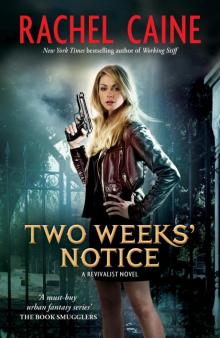 Two Weeks Notice
Two Weeks Notice Bitter Blood
Bitter Blood Carpe Corpus
Carpe Corpus Kiss of Death
Kiss of Death Ghost Town
Ghost Town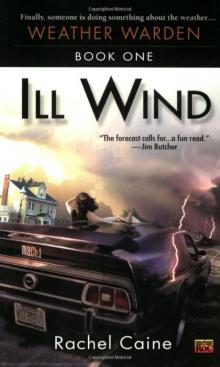 Ill Wind
Ill Wind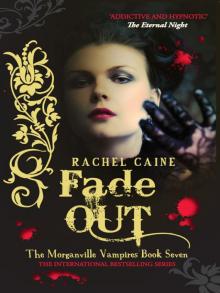 Fade Out
Fade Out Total Eclipse
Total Eclipse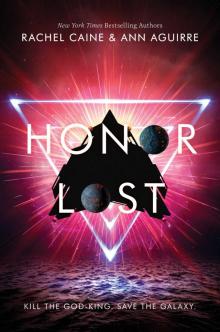 Honor Lost
Honor Lost Thin Air
Thin Air Black Corner
Black Corner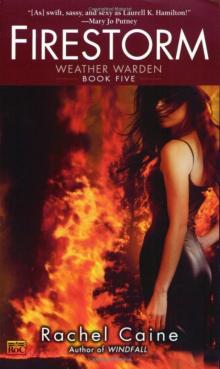 Firestorm
Firestorm Bite Club
Bite Club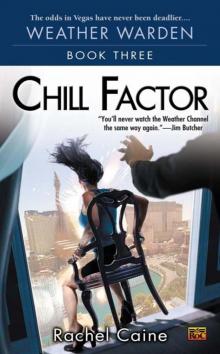 Chill Factor
Chill Factor Windfall
Windfall Oasis
Oasis Devils Bargain
Devils Bargain Terminated
Terminated Feast of Fools
Feast of Fools Lord of Misrule
Lord of Misrule Devils Due
Devils Due Ladies' Night
Ladies' Night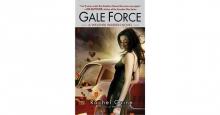 Gale Force
Gale Force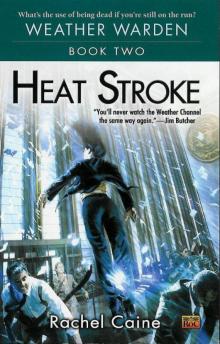 Heat Stroke
Heat Stroke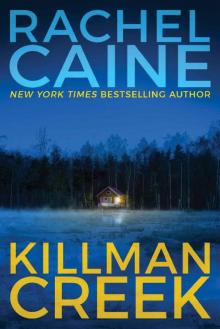 Killman Creek
Killman Creek Sword and Pen
Sword and Pen Cape Storm
Cape Storm Unbroken
Unbroken Windfall tww-4
Windfall tww-4 Heartbreak Bay (Stillhouse Lake)
Heartbreak Bay (Stillhouse Lake) Daylighters: The Morganville Vampires
Daylighters: The Morganville Vampires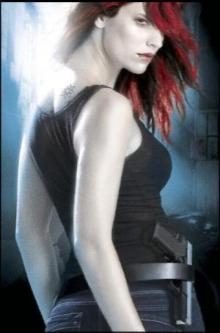 Duty
Duty Honor Bound
Honor Bound Unseen os-3
Unseen os-3 Firestorm tww-5
Firestorm tww-5 Blue Crush
Blue Crush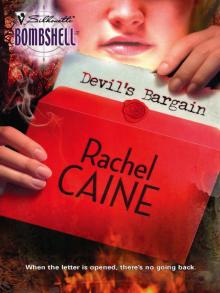 Devil s Bargain
Devil s Bargain Prince of Shadows: A Novel of Romeo and Juliet
Prince of Shadows: A Novel of Romeo and Juliet Bite Club mv-10
Bite Club mv-10 Terminated tr-3
Terminated tr-3 The Morganville Vampires 14 - Fall of Night
The Morganville Vampires 14 - Fall of Night Bitter Blood tmv-13
Bitter Blood tmv-13 Falling for Grace
Falling for Grace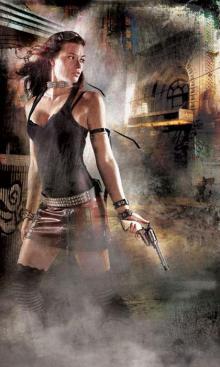 The True Blood of Martyrs
The True Blood of Martyrs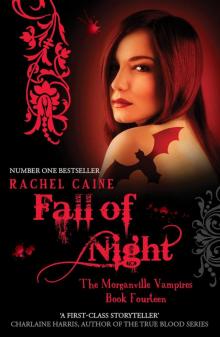 Fall of Night (The Morganville Vampires)
Fall of Night (The Morganville Vampires) Devil's Bargain rld-1
Devil's Bargain rld-1 The Morganville Vampires (Books 1-8)
The Morganville Vampires (Books 1-8)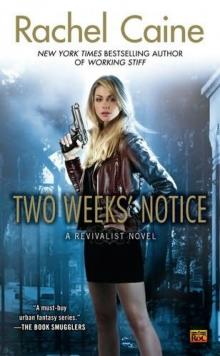 Two Weeks' Notice tr-2
Two Weeks' Notice tr-2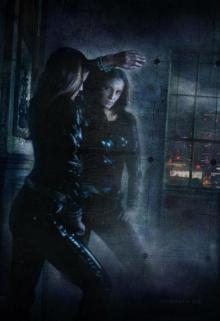 An Affinity for Blue
An Affinity for Blue Caine, Rachel-Short Stories
Caine, Rachel-Short Stories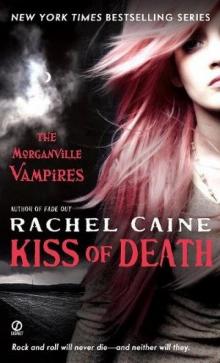 Kiss of Death tmv-8
Kiss of Death tmv-8 WITCHGRAVE
WITCHGRAVE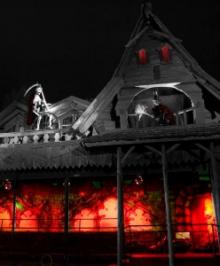 Dark Rides
Dark Rides The Morganville Vampires
The Morganville Vampires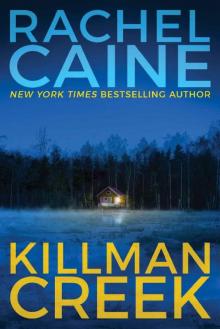 Killman Creek (Stillhouse Lake Series Book 2)
Killman Creek (Stillhouse Lake Series Book 2) Midnight Bites
Midnight Bites Line of Sight
Line of Sight![Morganville Vampires [01] Glass Houses Read online](http://i1.bookreadfree.com/i1/03/30/morganville_vampires_01_glass_houses_preview.jpg) Morganville Vampires [01] Glass Houses
Morganville Vampires [01] Glass Houses Black Dawn tmv-12
Black Dawn tmv-12 Midnight at Mart ww-103
Midnight at Mart ww-103 Feast of Fools tmv-4
Feast of Fools tmv-4 Ill Wind tww-1
Ill Wind tww-1 Devil's Due rld-2
Devil's Due rld-2 Black Dawn: The Morganville Vampires
Black Dawn: The Morganville Vampires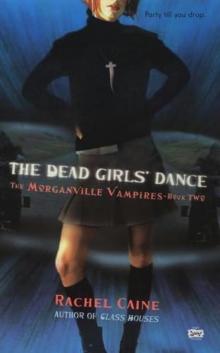 Dead Girls' Dance tmv-2
Dead Girls' Dance tmv-2 Minute Maids
Minute Maids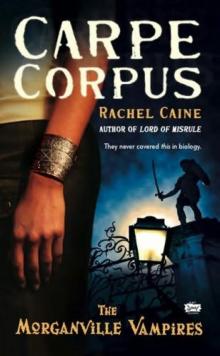 Carpe Corpus tmv-6
Carpe Corpus tmv-6 Total Eclipse tww-9
Total Eclipse tww-9 Ghost Town mv-9
Ghost Town mv-9 Lord of Misrule tmv-5
Lord of Misrule tmv-5 Faith Like Wine
Faith Like Wine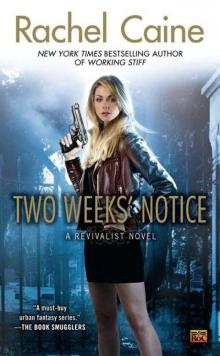 Two Weeks' Notice: A Revivalist Novel
Two Weeks' Notice: A Revivalist Novel Daylighters tmv-15
Daylighters tmv-15 Stamps, Vamps & Tramps (A Three Little Words Anthology)
Stamps, Vamps & Tramps (A Three Little Words Anthology) Unbroken os-4
Unbroken os-4 Unknown os-2
Unknown os-2 4 - Unbroken
4 - Unbroken Cape Storm tww-8
Cape Storm tww-8 Last Breath tmv-11
Last Breath tmv-11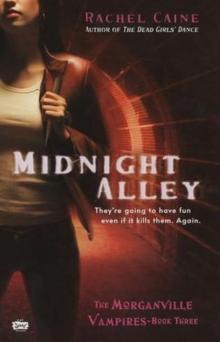 Midnight Alley tmv-3
Midnight Alley tmv-3 Glass Houses tmv-1
Glass Houses tmv-1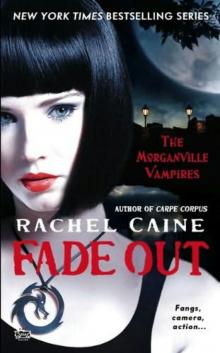 Fade Out tmv-7
Fade Out tmv-7 Fall of Night tmv-14
Fall of Night tmv-14 Godfellas
Godfellas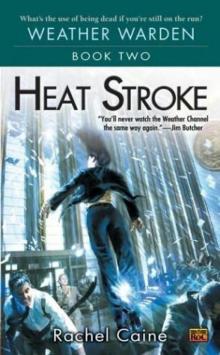 Heat Stroke ww-2
Heat Stroke ww-2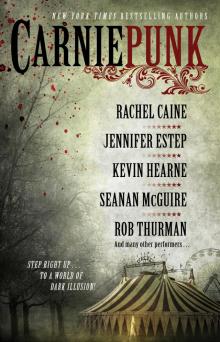 Carniepunk
Carniepunk Oasis ww-102
Oasis ww-102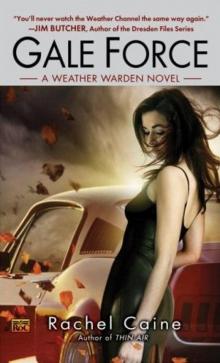 Gale Force tww-7
Gale Force tww-7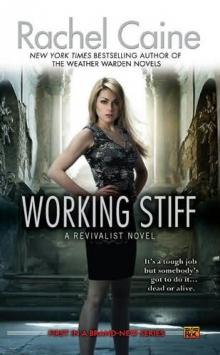 Working Stiff tr-1
Working Stiff tr-1